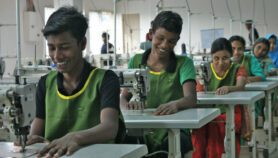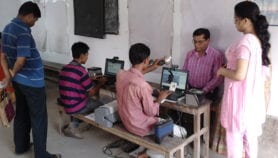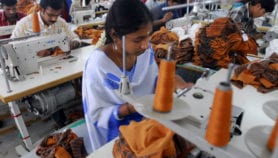By: Hepeng Jia
Send to a friend
The details you provide on this page will not be used to send unsolicited email, and will not be sold to a 3rd party. See privacy policy.
[BEIJING] Top Chinese universities use up too much of the education budget and produce too little high-quality scientific research, says a member of the Chinese parliament.
Hong Kezhu has accused China’s top universities of building luxury buildings with funds allocated for scientific research since 1998.
Hong submitted a motion at this year’s plenary meeting of the National People’s Congress (NPC) held 5-15 March, urging education authorities to distribute funding more fairly and fight academic misconduct in top universities.
Hong criticised the Beijing-based Tsinghua and Peking universities and the Fudan and Jiao Tong universities in Shanghai for their low scientific output, despite receiving large amounts of funding.
The four universities each received a special appropriation of 1.8 billion yuan (US$225 million) in 1998 and have enjoyed more funding than other universities since.
Hong is a senior engineer at China’s State Construction Engineering Corporation and a part-time professor at Wuhan University and Huazhong Science and Technology University, both based in Hubei Province. He told local newspaper Yanzhao Urban News: "One university even spent 10 million yuan (US$1.2 million) building a luxury lavatory."
He also claims that students aren’t recruited evenly from university catchment areas. For example, the annual number of students Tsinghua and Peking universities enrol from Beijing is five times that from Hubei Province, whose population is five times that of Beijing.
Responding to the criticism, Xu Zhihong, president of Peking University and member of NPC, told the Beijing Morning Post that top universities undertake more research and should therefore be given more funding.
Yang Dongping, director of the Institute of Education at the Beijing Institute of Technology, said the problems have been known for years, but that constructive suggestions are needed.
"The key problem is that higher education funding is mainly given to universities — which will allot the funding to themselves — instead of individual labs or academic departments on a competitive basis," he told SciDev.Net.
Yang said the Ministry of Education has not set up a reasonable system to evaluate the achievements of universities that receive the money.
The disparity between China’s investment in research and its scientific output was highlighted in a report by the Ministry of Science and Technology published last month (see Chinese research not reflecting increased investment).













